蕭錫惠 | Hsi-Huei Hsiao
川普的鐵腕與遠見:動盪時代中 美國不可或缺的領導力
蕭錫惠 2025年6月,美國社會再次陷入動盪──從洛杉磯暴動、紐約無證移民抗議,到種族與執法爭議重燃,距離喬治·弗洛伊德之死已滿五年。然而,與2020年不同的是,如今白宮由川普總統領導,一位堅決維護法治與邊境主權的領袖。 川普總統自今年1月上任後,立即推動移民與執法改革,重啟「留在墨西哥」政策、終止DACA與TPS,並對多國實施入境限制。4月,美國移民與海關執法局(ICE)逮捕超過15萬名無證移民,其中七成涉及犯罪行為。同時,國防部調派3,600名軍人至南部邊境,成功遏阻非法越境潮。 這些政策,雖遭自由派媒體批評為「強硬」與「不人道」,卻是對多年間邊境失控、治安惡化與社會信任崩潰的務實回應。當犯罪組織如委內瑞拉幫派Tren de Aragua滲入美國城市、當聯邦資源被無證移民與虛假庇護濫用,政府若再坐視不管,不僅是政策失職,更是對守法公民的背叛。 此外,川普也勇於面對國內左派極端組織的威脅。在洛杉磯暴動期間,他下令出動國民警衛隊、強化對Antifa等煽動組織的調查,成功穩定局勢。左派政客與媒體常將這些團體包裝為「社會正義」力量,但事實上,他們多次以暴力手段挑戰法治,甚至與外國勢力的意識形態不謀而合。 這也牽涉到更大的全球局勢。今日的世界並不太平:俄羅斯持續侵略烏克蘭,中共在台海與南海頻繁挑釁,以哈衝突持續升級。在這樣的背景下,美國不僅要處理國內問題,更須展現全球領導力。川普明確指出中共透過孔子學院、千人計畫、假新聞帳號等形式滲透西方社會,並採取措施限制中資進入敏感產業。 有人批評川普將國內動亂與中共滲透連結過頭,但這是忽視現代地緣政治與資訊戰的本質。中共並非傳統意義上的軍事對手,而是一個善於利用社會分裂、操作輿論、培養代理人組織的政權。若美國領導人對此視而不見,才是真正的危險。 誠然,任何改革都有磨合期。部分移民政策對勞動市場造成短期衝擊,ICE執法也需避免誤捕合法居民,但這並非改革無效,而是需要進一步優化。真正的錯誤,是像過去那樣姑息犯罪、開放邊境、任由社會撕裂。 川普總統展現出的是一種不畏爭議、捍衛主權與秩序的領導風格。這不只是為了美國自身,更是對整個民主世界的承諾。在中共擴張、俄羅斯侵略、伊朗策動代理人戰爭的時代,只有一個堅定的美國,才能守住自由。 與其一味批評川普的強硬,我們應該問:若非如此,美國今天的社會與全球地位會更安全嗎?(民進黨美東黨部前評議委員)0609 本文原登於台灣日報(2025-06-09)
Trump’s Iron Resolve and Strategic Vision: The Indispensable Leadership America Needs in Turbulent Times
In June 2025, American society has once again plunged into unrest — from riots in Los Angeles and protests by undocumented immigrants in New York, to renewed tensions over race and law enforcement. Five years have passed since the death of George Floyd. But unlike 2020, the White House is now led by President Donald Trump — a leader unwavering in his defense of law and order and national sovereignty.
Since taking office in January, President Trump has swiftly implemented immigration and law enforcement reforms. He reinstated the “Remain in Mexico” policy, terminated DACA and TPS, and imposed new travel restrictions on several countries. In April, U.S. Immigration and Customs Enforcement (ICE) arrested over 150,000 undocumented immigrants, 70% of whom had criminal records. Meanwhile, the Department of Defense deployed 3,600 troops to the southern border, successfully curbing the surge of illegal crossings.
While liberal media have criticized these policies as “draconian” and “inhumane,” they are in fact pragmatic responses to years of border chaos, rising crime, and eroding public trust. When criminal syndicates like Venezuela’s Tren de Aragua infiltrate U.S. cities, and federal resources are drained by undocumented migrants and false asylum claims, inaction by the government is not just policy failure — it is a betrayal of law-abiding citizens.
President Trump has also shown the courage to confront domestic threats from far-left extremist groups. During the LA riots, he ordered the deployment of the National Guard and intensified investigations into agitators like Antifa, helping to restore order. Progressive politicians and media often portray such groups as “social justice” movements, but in reality, they have repeatedly resorted to violence to challenge the rule of law — often echoing the ideological narratives of foreign adversaries.
This ties into the broader global context. The world today is far from stable: Russia continues its aggression against Ukraine; the Chinese Communist Party (CCP) provokes conflicts across the Taiwan Strait and South China Sea; and the Israel-Hamas conflict remains volatile. In such a world, the U.S. must do more than manage domestic affairs — it must demonstrate global leadership. President Trump has clearly identified CCP infiltration tactics — via Confucius Institutes, the Thousand Talents Program, and disinformation networks — and has taken steps to restrict Chinese investment in sensitive sectors.
Some critics argue that Trump overstates the link between domestic turmoil and CCP influence. But such skepticism overlooks the realities of modern geopolitics and information warfare. The CCP is not a traditional military adversary; it is a regime skilled in exploiting social divisions, manipulating public discourse, and cultivating proxy organizations. Ignoring this threat is far more dangerous.
Of course, all reforms involve growing pains. Some immigration measures have caused short-term disruption in the labor market, and ICE must remain vigilant to avoid wrongful detentions. But these are not signs of failure — they point to areas for refinement. The real mistake would be to return to policies of appeasement: lax enforcement, open borders, and tolerating societal fragmentation.
President Trump has demonstrated a bold, controversy-resistant leadership that upholds sovereignty and order. This is not just for America’s sake — it is a commitment to the entire democratic world. In an era of CCP expansion, Russian aggression, and Iranian proxy wars, only a resolute America can safeguard freedom.
Rather than criticize Trump’s tough stance, we should ask: without it, would America be safer today? Would the world?
(Former Evaluative Committee Member, Democratic Progressive Party – Eastern U.S. Chapter)
Originally published in Taiwan Daily, June 9, 2025
